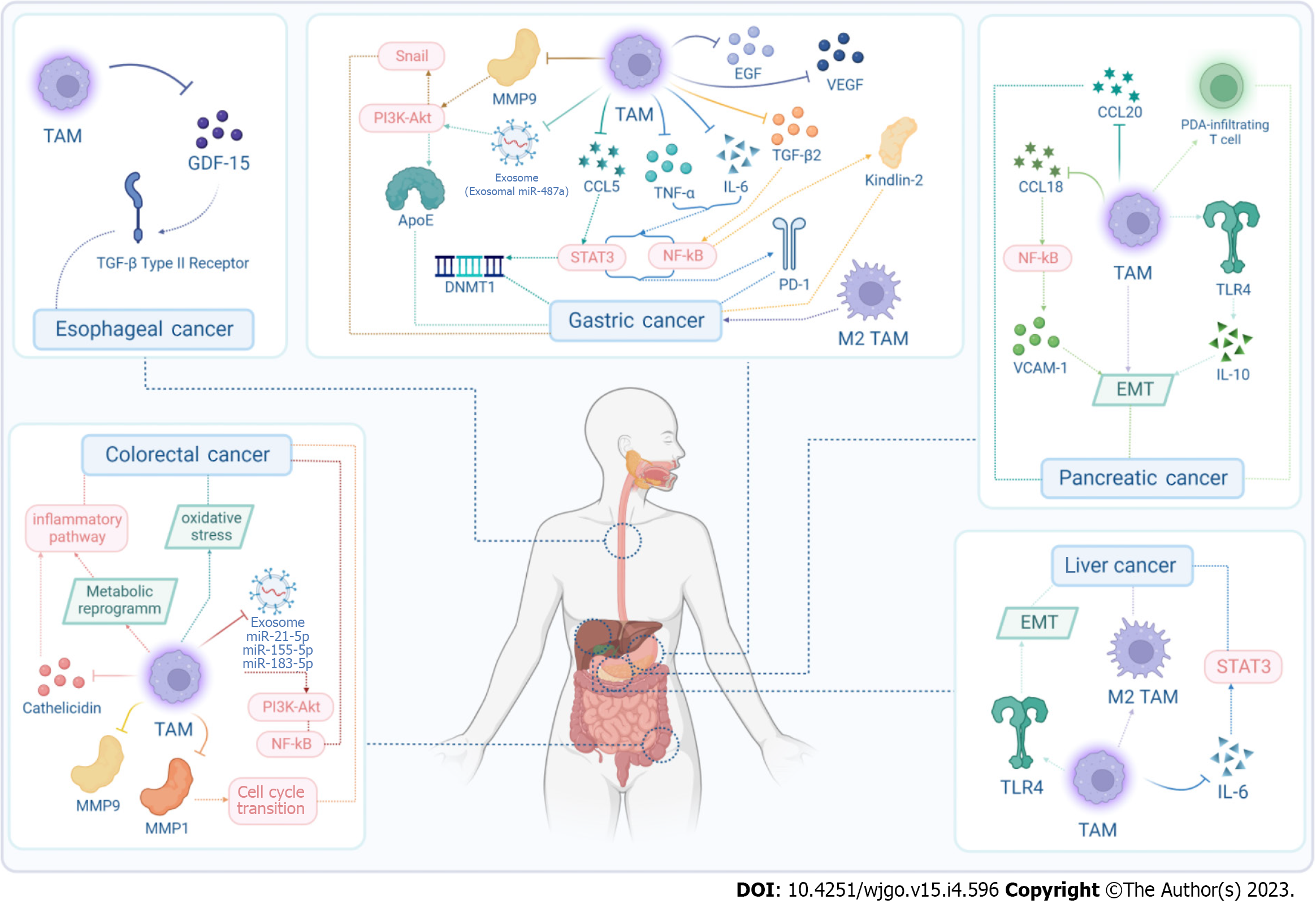Copyright
©The Author(s) 2023.
World J Gastrointest Oncol. Apr 15, 2023; 15(4): 596-616
Published online Apr 15, 2023. doi: 10.4251/wjgo.v15.i4.596
Published online Apr 15, 2023. doi: 10.4251/wjgo.v15.i4.596
Figure 1 Tumor-associated macrophages can promote the development of tumors.
Tumor-associated macrophages (TAMs) can affect cancer progression through multiple mechanisms, which are varying in esophageal cancer (EC), gastric cancer (GC), colorectal cancer (CRC), pancreatic cancer (PC), liver cancer (LC). Color differences indicate various strategies the TAMs use on their targets, the arrows represent secretory or regulatory behaviors, and braces represent combined action of the factors. Moreover, the pink icons stand for common signaling pathways and the green icons, biological processes. In EC, growth/differentiation factor-15 and transforming growth factor-beta receptor are involved in regulations. In GC, stimulation with anti-inflammatory triggers, growth factors, chemokine, exosomes and enzymes, leads to expression of transcription factors. In CRC, TAMs work with exosomes, matrix metalloproteinases and cathelicidin, concerning signaling pathways, cell cycle transition, metabolic reprogram, inflammatory pathways and oxidative stress. In PC and LC, TAMs regulate their development similarly through interleukins and Toll like receptor 4, leading to activation of transcription factors and epithelial mesenchymal transition of tumors. Thus, TAMs can regulate digestive system malignant tumors by diverse direct and indirect mechanisms. TAM: Tumor-associated macrophages; GDF-15: Growth/differentiation factor-15; TGF-β: Transforming growth factor-β; PI3K: Phosphoinositide 3-kinase; MMP9: Matrix metalloproteinases 9; EGF: Epidermal growth factor; VEGF: Vascular endothelial growth factor; CCL5: CC ligand 5; TNF-α: Tumor necrosis factor-α; IL: Interleukin; STAT3: Signal transducers and activator of transcription 3; NF-kB: Nuclear factor kB; PD-1: Programmed death 1; PDA: Pancreatic ductal adenocarcinoma; TLR4: Toll like receptor 4; VCAM: Vascular cellular adhesion molecule-1; EMT: Epithelial mesenchymal transition; DNMT1: DNA methyltransferase 1.
- Citation: Shen Y, Chen JX, Li M, Xiang Z, Wu J, Wang YJ. Role of tumor-associated macrophages in common digestive system malignant tumors. World J Gastrointest Oncol 2023; 15(4): 596-616
- URL: https://www.wjgnet.com/1948-5204/full/v15/i4/596.htm
- DOI: https://dx.doi.org/10.4251/wjgo.v15.i4.596









